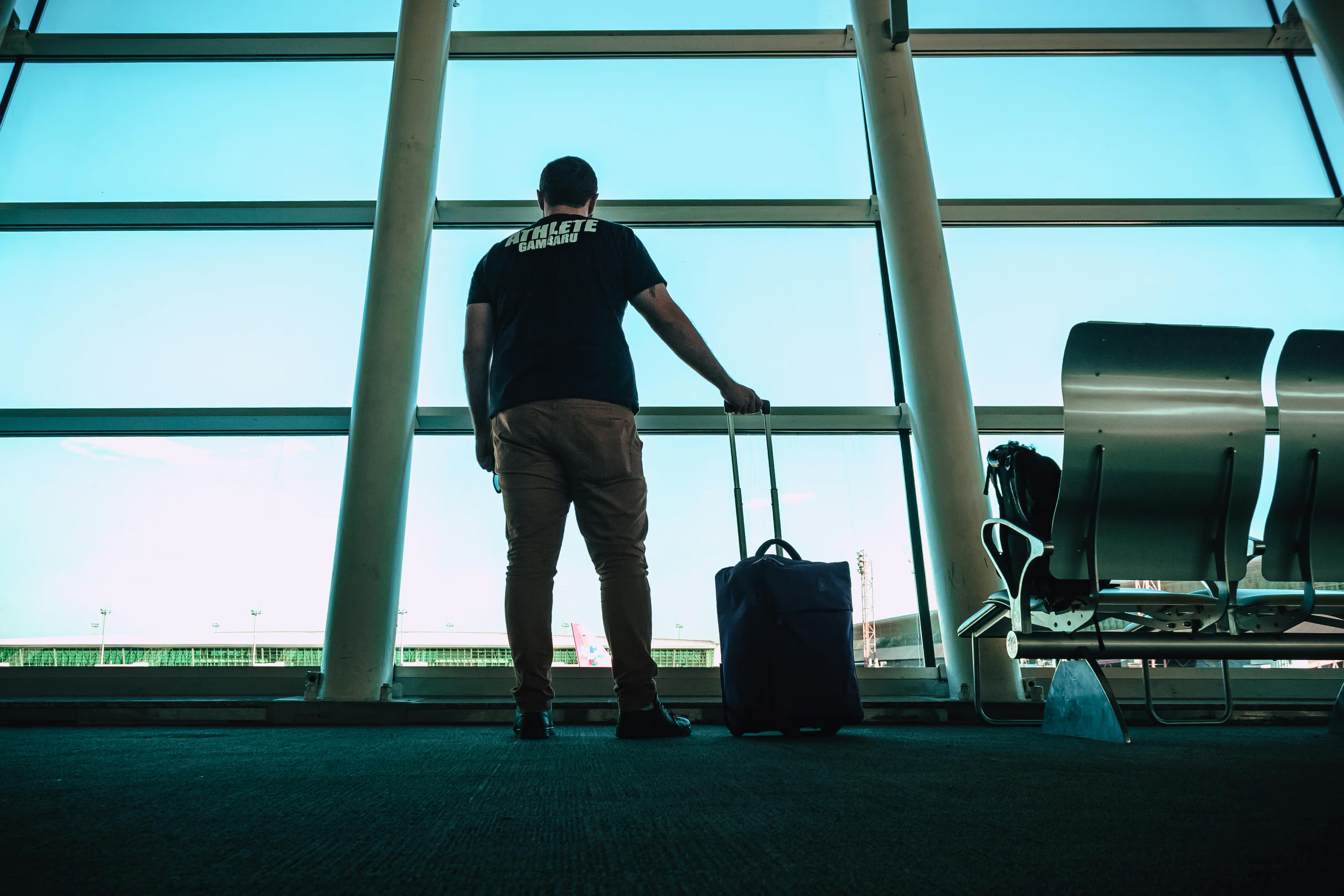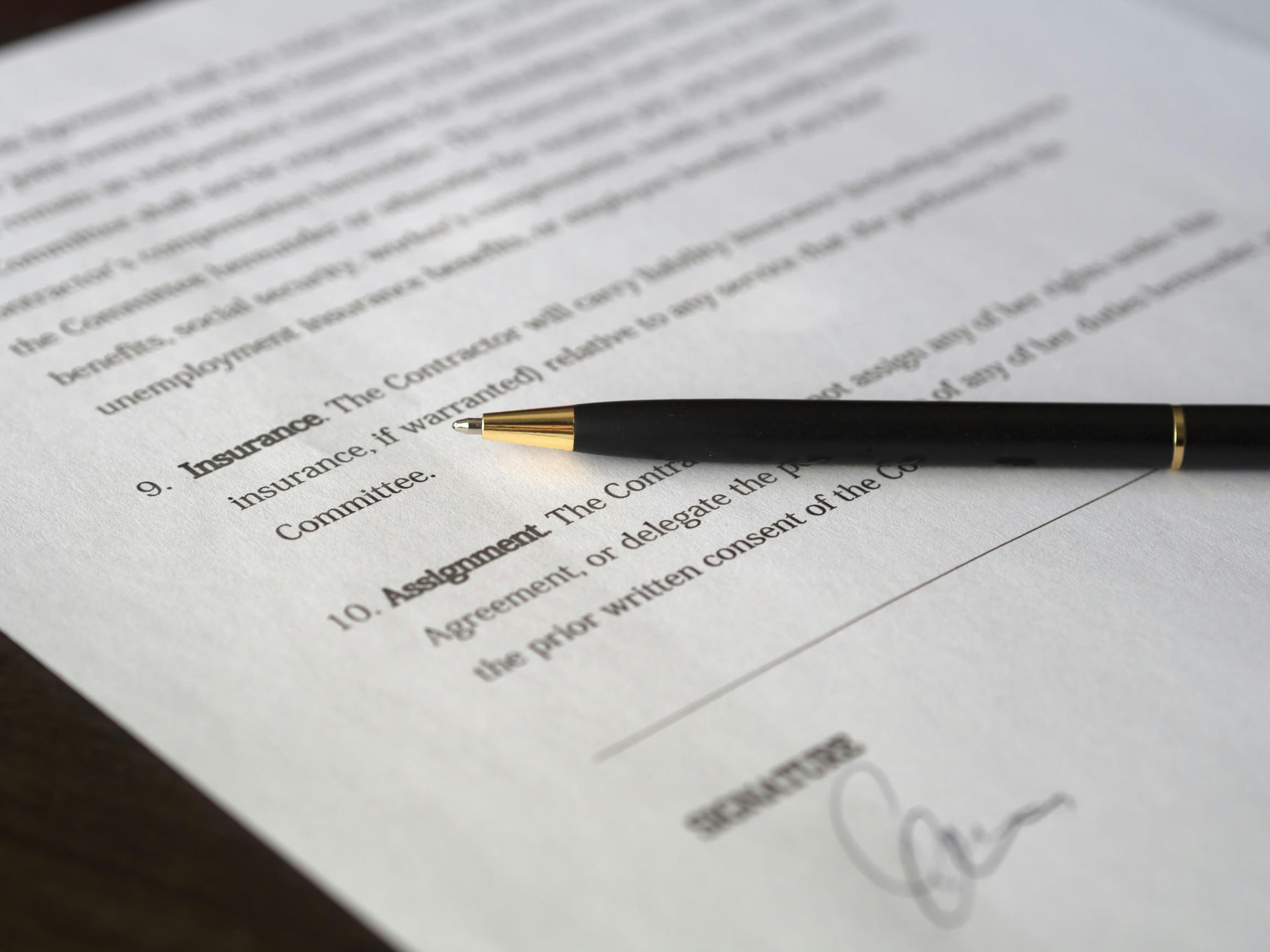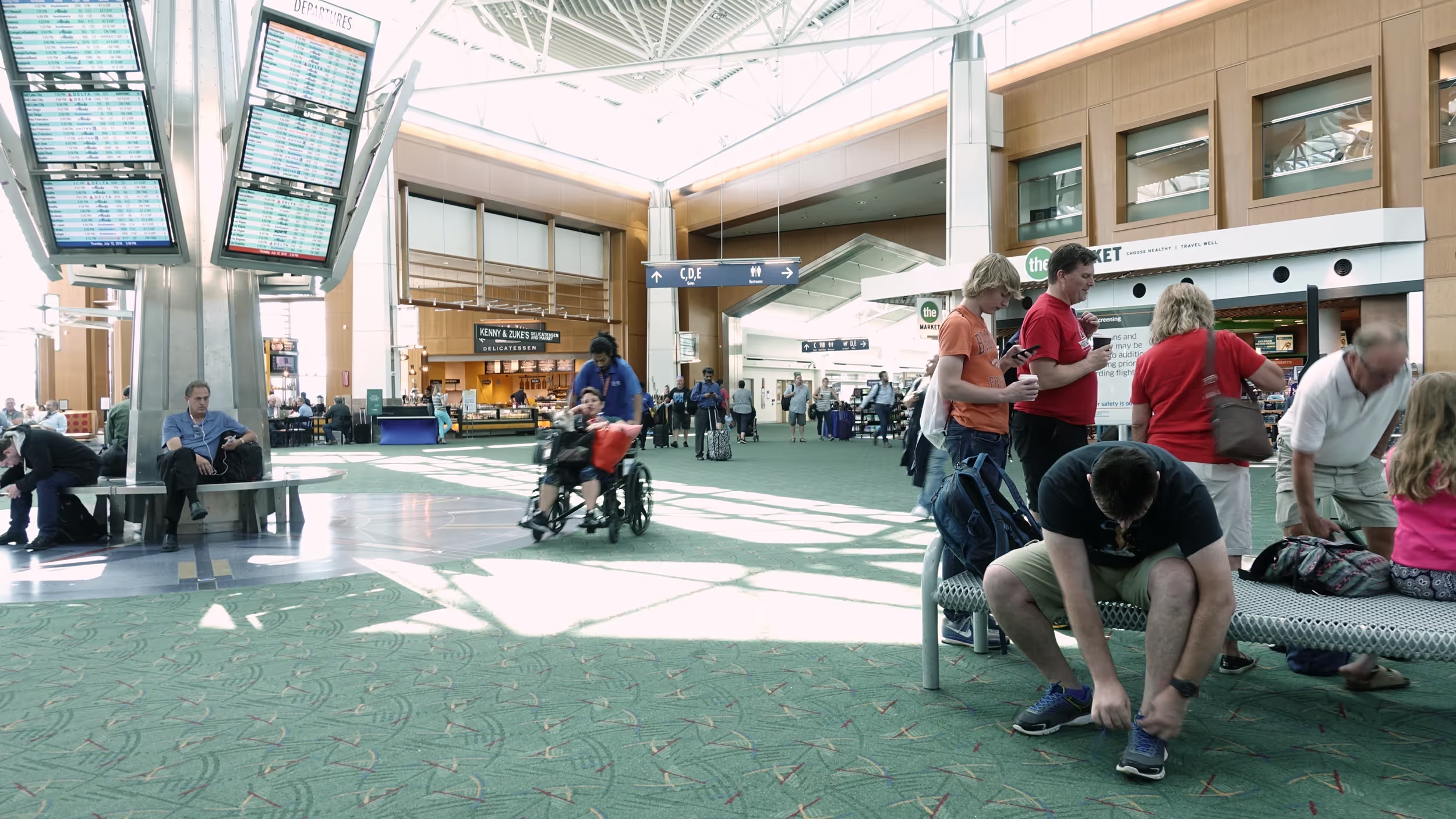Duty of Care Travel Management: Policy Guide and Safety Checklist

When your crew hits the road for work, their safety isn't just their problem—it's yours. A missed flight, medical emergency, or unexpected crisis can derail your project timeline and put your people at risk.
You need a business travel duty of care policy that covers the basics: clear safety protocols, communication guidelines, and backup plans for when things go sideways.
If you're managing crew travel and wondering what you're legally required to do—and how to build travel policies that actually work when projects change—this guide covers everything you need to know.
What Is Duty of Care in Business Travel?
Duty of care means you're legally and ethically responsible for keeping your crew safe while they're traveling for work.
According to the IRS, corporate travel covers any work-related trip that takes someone away from home longer than a typical workday and requires an overnight stay. Your duty of care covers both physical and mental well-being, making sure your people have the support, resources, and backup plans they need.
Travel managers and project coordinators handle most of this responsibility. Your travel decisions should focus on crew safety first—safe transportation, decent accommodations, and clear emergency protocols.
Duty of care and risk management work together but serve different purposes. Risk management looks at potential threats to your business operations, while duty of care protects individual crew members.
For example, your risk management strategy might analyze the financial impact of canceled flights. Your duty of care makes sure that the crew member has the resources to rebook travel and accommodations after that canceled flight.
With the right policies in place, you protect your people and keep projects moving.
Why Duty of Care Matters for Crew Travel
Work trips come with risks. Medical emergencies, accidents, and natural disasters happen. You can't prevent these problems, but you can prepare for them.
Industry experts report that 2024 brought aircraft malfunctions, hotel incidents, and increased weather disasters affecting business travel. The old thinking that duty of care only matters for international travel is wrong. Domestic problems can shut down your project just as fast.
Beyond keeping people safe, a solid duty of care program shows your crew that their safety matters. Clear, workable plans signal that you'll have their back when things go wrong.
Companies with strong duty of care programs see higher employee morale and retention rates. When your crew knows you'll support them during travel emergencies, they're more confident taking on assignments that help grow the business.
Who's Responsible for What in Duty of Care
Business travel duty of care is everyone's job, including the person traveling. Here's who does what.
What You Need to Do as an Employer
You're responsible for protecting your crew from health and safety risks during work trips. Build a flexible program that can respond quickly when problems hit. Get your HR, finance, and risk teams involved so you can plan for the most common travel disruptions.
Your duty of care policy should cover what to do when a crew member:
- Misses a flight
- Gets sick or injured
- Loses important documents (license, passport, certifications)
- Has an accident
Your crew will need to handle the immediate situation—replacing a lost passport or dealing with a doctor's visit. But you need clear protocols and resources ready so they have the support to get home safely.
The Occupational Safety and Health Administration (OSHA) provides emergency planning resources, and our safety tips guide covers practical advice for unexpected situations.
The Centers for Disease Control and Prevention (CDC) says business travelers should see a healthcare provider at least one month before departure and keep emergency contact information updated throughout their trip.
What Your Crew Members Need to Do
Duty of care doesn't fall entirely on your shoulders. Plus, you may be held liable for what your crew does while traveling on company business.
If someone engages in risky behavior—like excessive drinking—and hurts themselves or others, you could be on the hook for damages or legal problems.
Clear policies about acceptable behavior during work trips help reduce risk and liability. Have your crew sign these policies and complete training on healthy travel before they leave.
The best approach treats duty of care as a partnership between you and your crew.
With everyone clear on their role, you can focus on building practical policies that protect traveling employees.
Build Better Duty of Care Policies
A good business travel duty of care policy is thorough. But that doesn't mean planning for every extreme scenario. Here are proven practices to keep your travel policy focused and workable.
Run Risk Assessments for Specific Dangers
Every job site and destination has unique risks. Before booking travel, assess specific dangers, such as high crime rates, natural disasters, or regional health issues. This proactive risk assessment helps you decide whether the trip is safe and what precautions to take.
For example, if you're sending a crew to Florida during hurricane season, book refundable flights and have backup accommodation plans.
Modern travel risk management gives you structured approaches for evaluating and reducing potential threats to your crew, whether they're heading to client meetings in major cities or field operations in remote locations.
These approaches help you move beyond reactive crisis management to proactive risk prevention.
Book Transportation and Accommodations That Meet Safety Standards
Your crew deserves to feel secure away from home, and that goes beyond a comfortable bed. Focus on travel arrangements that meet high safety standards: airlines and ground transport with strong safety records and accommodations with solid security measures.
Different types of work travel present varying risk levels, from corporate meetings in downtown hotels to field assignments requiring specialized accommodations.
Reduce Unavoidable Risks with Insurance and Technology
You can't predict injuries or severe weather, but you can prepare for them. Choose travel insurance that covers medical emergencies, trip cancellations, and evacuations.
Use travel monitoring tools that keep you connected to your crew at all times. This lets you help quickly during a crisis and adapt fast to changing needs, like booking a different flight home or moving to safer accommodations.
Many companies lack solid travel safety plans, leaving both crew members and the business exposed to unnecessary risks during work travel.
The right insurance and technology tools form the foundation of effective emergency response.
Make Sure Your Crew Has Required Vaccinations and Medications
Health preparation varies significantly by destination. Some locations require specific medical precautions that standard business travel doesn't address.
For certain destinations, travelers need specific shots and information about potential disease outbreaks. Many countries require specific vaccinations, such as malaria or yellow fever shots.
A visit to a medical specialist at least one month prior to departure should be on every international checklist. For certain regions, provide general health briefings about things like tap water safety or site-specific safety guidelines.
Putting these practices into action requires a systematic approach to tracking and monitoring every aspect of business travel safety.
Essential Travel Checklist for Duty of Care Compliance
Creating a complete travel checklist makes sure nothing gets missed when managing crew safety. Your duty of care travel management checklist should include:
Pre-Travel Requirements
- Risk assessment completed for destination
- Required vaccinations and health clearances obtained
- Travel insurance coverage verified and communicated
- Emergency contact information distributed to all travelers
- Company travel policy acknowledgment signed
- Travel arrangements booked through approved channels
During Travel Monitoring
- Real-time traveler location tracking enabled
- 24/7 emergency assistance access confirmed
- Regular check-in protocols established
- Local emergency services and medical facilities contact information available
- Communication channels maintained between travelers and home office
Post-Travel Follow-Up
- Incident reporting procedures completed
- Expense management and receipt collection finalized
- Traveler feedback collected for policy improvements
- Lessons learned documented for future trips
- Health monitoring for international travelers if required
Having a solid checklist is just the first step. Next is turning these requirements into a workable policy your crew can follow.
Effective policies start with understanding your current gaps and building from there.
How to Create a Business Travel Duty of Care Policy: 4 Steps
A duty of care policy won't cover every emergency, but it can make sure your crew gets support while traveling for work. Here's how to build one in four steps:
1. Review Your Current Travel Policy
Look at your existing travel policies and find the gaps. This includes reviewing past travel incidents and getting feedback from your crew about their experiences.
With Engine, you can set clear rules and customize policies for different teams to build an efficient and safe travel experience.

2. Set Up a Clear Pre-Travel Process
Create a complete pre-travel checklist that covers necessary steps before departure. This might include getting vaccinations, reviewing destination-specific risks, and organizing all documentation.
Use our travel checklist to make sure nothing gets missed.
3. Plan for Contingencies
Plan for problems by outlining what actions to take during a travel emergency. Make sure your crew knows who to contact, which communication channels to use, and what documentation they need to keep.
Also, be clear about the emergency support services and insurance coverage available to them.
4. Handle Both Domestic and International Travel
Domestic and international travel require different planning. Make sure your duty of care policy addresses both scenarios.
Consider specific guidelines for international travel—vaccination requirements and safety risks—and domestic travel—road safety and access to emergency medical care.
The National Institute for Occupational Safety and Health (NIOSH) provides workplace safety guidance that applies to business travel situations, whether your crew is attending conferences, visiting clients, or working at remote locations.
Stay in Control of Your Duty of Care Policy with Engine
Your crew's safety is your responsibility, whether they're traveling to client meetings or remote work sites. Engine gives you real-time visibility into traveler locations and instant communication when emergencies happen.
Our platform handles group bookings, policy compliance, and expense tracking with Direct Bill and FlexPro services—so you can focus on keeping people safe rather than chasing receipts.
Ready to protect your crew and reduce your liability risks? Sign up for Engine and get real-time visibility into traveler locations, instant emergency communication, and policy compliance tools that keep your people safe and your business protected.
Frequently Asked Questions
What are the legal requirements for duty of care in business travel?
Legal requirements vary by jurisdiction, but generally include providing safe transportation and accommodations, maintaining communication capabilities, and having emergency response procedures. In the US, OSHA regulations apply to business travel, while international assignments may involve additional guidelines like ISO 31030.
What's the difference between duty of care and travel insurance?
Duty of care is your ongoing responsibility to protect crew members before, during, and after business travel. Travel insurance covers specific financial risks like medical emergencies or trip cancellations. Insurance doesn't replace duty of care—it supports your broader obligation to employee safety and wellbeing.
How do I handle duty of care for international assignments?
International duty of care requires extra planning around vaccinations, work permits, local health risks, and emergency evacuation procedures. Build relationships with local medical facilities, make sure travelers understand local laws and customs, and maintain reliable communication channels.
What should I do if crew members don't follow safety protocols while traveling?
Document policy violations and address them immediately upon return. Repeat violations may require additional training, policy acknowledgments, or travel restrictions. Remember that you could still be held liable for crew actions during business travel, so clear policies and consistent enforcement protect both the employee and your company.





.avif)


.jpg)

.avif)
























![How to Get the Best Hotel Deals and Rewards [Infographic]](https://cdn.prod.website-files.com/66a41388b1be9ba182f1e80c/66a41388b1be9ba182f1f257_Windsor_Hotel_-_in_winter.avif)
.avif)

.avif)

